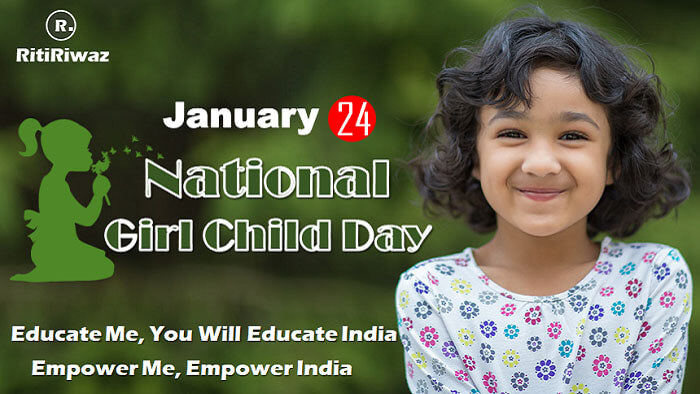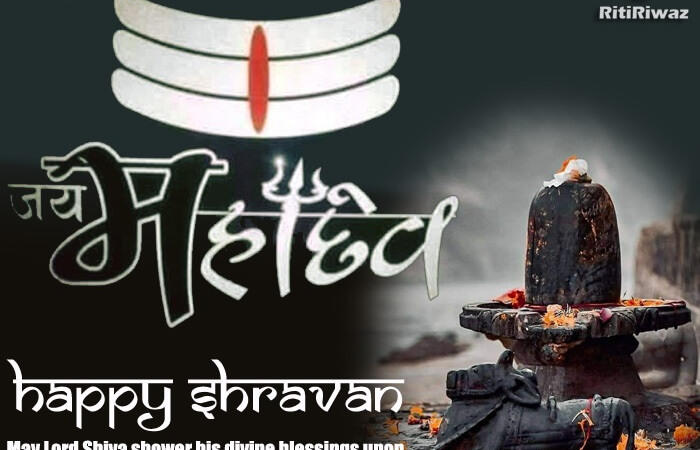National Girl Child Day

The National Girl Child Day is celebrated on 24th January every year. In 2009 Indian Government declared 24th January as National Girl Child Day and from then every year Nation celebrates Girl Child.
This celebration was started to offer more support and new opportunities for the girls in the country. It is celebrated to increase awareness among people about all the inequalities faced by the girl child in society.
Inequality about girl children is a vast problem that includes areas like inequality in education, nutrition, legal rights, medical care, protection, honor, child marriage and so many more. National girl child day has been started as a national girls development mission by the Government of India. It enhances the meaningful contribution of the girls in decision-making processes through the active support of the parents and other community members.
The Theme for 2024 is yet to be announced. While the Theme for 2022 was “Our time is now—our rights, our future.” However the theme for 2021 was “Digital Generation, Our Generation”. In 2020 it was celebrated with the theme “My voice, our equal future”, and in 2019, it was “Empowering Girls for a Brighter Tomorrow. The day is celebrated across the country with the objective of raising awareness on the issue of the declining Child Sex Ratio (CSR). The celebrations will also mark the anniversary of Beti Bachao, Beti Padhao (BBBP) scheme.
The anti-girl attitude of our society
A girl child is discriminated against from the earliest stages of life, through her childhood and into adulthood. In some areas of the world, men outnumber women by 5 in every 100. The reasons for the discrepancy include, among other things, harmful attitudes and practices, such as female genital mutilation, son preference – which results in female infanticide and prenatal sex selection – early marriage, including child marriage, violence against women, sexual exploitation, sexual abuse, discrimination against girls in food allocation and other practices related to health and well-being. As a result, fewer girls than boys survive into adulthood.
Girls are often treated as inferior and are socialized to put themselves last, thus undermining their self-esteem. Discrimination and neglect in childhood can initiate a lifelong downward spiral of deprivation and exclusion from the social mainstream. Initiatives should be taken to prepare girls to participate actively, effectively, and equally with boys at all levels of social, economic, political, and cultural leadership.
Gender-biased educational processes, including curricula, educational materials and practices, teachers’ attitudes, and classroom interaction, reinforce existing gender inequalities.
Girls and adolescents may receive a variety of conflicting and confusing messages on their gender roles from their parents, teachers, peers, and the media. Women and men need to work together with children and youth to break down persistent gender stereotypes, taking into account the rights of the child and the responsibilities, rights, and duties of parents.
In many cases, girls start to undertake heavy domestic chores at a very early age and are expected to manage both educational and domestic responsibilities, often resulting in poor scholastic performance and an early drop-out from schooling.
The percentage of girls enrolled in secondary school remains significantly low in India. Girls are often not encouraged or given the opportunity to pursue scientific and technological training and education, which limits the knowledge they require for their daily lives and their employment opportunities.
Girls are less encouraged than boys to participate in and learn about the social, economic, and political functioning of society, with the result that they are not offered the same opportunities as boys to take part in decision-making processes.
Existing discrimination against the girl child in her access to nutrition and physical and mental health services endangers her current and future health. An estimated 450 million adult women in developing countries are stunted as a result of childhood protein-energy malnutrition. Malnourished girls grow up to be malnourished women who give birth to malnourished children.
Fetal foeticide based on gender selection has posed a major problem for doctors, society, government, and religious institutions in the Punjab and other regions of northern India. Female fetuses are selectively aborted after prenatal sex determination, thus avoiding the birth of girls. In India where female infanticide has existed for centuries, now female foeticide has joined the fray and is increasing each day.
In 10 years, the sex ratio of pre-school children in Punjab dropped from the already low levels (925 to 874 during 1981-1991). Sharp declines also occurred in Haryana and Rajasthan, states where female foeticide is widespread.
The reasons behind the high gender-based abortion rate are the desire for male offspring and the dowry. Despite legal attempts to outlaw the dowry, the practice has increased in Indian society.
Traditionally the dowry was practiced in upper castes. However, with an increasing economic change in all sections of Indian society, the dowry became prevalent among all castes. Dowry is now endemic in Indian society and given to the groom when a daughter is married. It is a significant economic burden upon the family. Moreover, daughters leave the family home and therefore form a net financial burden upon the Indian family system. Indian society has not found an economic or significant cultural value for girls within the family except when they come in as daughters-in-law. Indian culture can be extremely cold in decisions such as fetal foeticide.
All barriers must, therefore, be eliminated to enable girls without exception to develop their full potential and skills through equal access to education and training, nutrition, physical and mental health care, and related information.
Suggested Read: International Day of the Girl Child

“A daughter is not equal to Tensions, a daughter is equal to Ten sons.”






